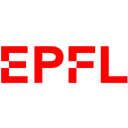Explore the fundamentals of magnetic resonance and its applications in physics, chemistry, and biology, including MRI and molecular analysis.
Explore the fundamentals of magnetic resonance and its applications in physics, chemistry, and biology, including MRI and molecular analysis.
Dive into the fascinating world of magnetic resonance with this comprehensive course. Discover the principles behind magnetic resonance imaging (MRI) and explore its wide-ranging applications in physics, chemistry, and biology. Learn how scientists determine three-dimensional protein structures without crystallization and how chemists verify molecular synthesis. This course offers an accessible yet thorough understanding of magnetic resonance principles, methods, and applications. From medical diagnostics to chemical analysis, you'll gain insights into how magnetic resonance technologies are transforming various scientific fields. Ideal for students and professionals looking to expand their knowledge in this critical area of science and technology.
Instructors:
English
English, French
What you'll learn
Understand the basic principles of magnetic resonance and their applications in various scientific fields
Explain the workings of magnetic resonance imaging (MRI) and its use in medical diagnostics
Describe techniques for determining three-dimensional protein structures using magnetic resonance
Understand how chemists use magnetic resonance to verify molecular structures and synthetic products
Explore applications of magnetic resonance in physics, chemistry, and biology
Analyze the role of magnetic resonance in studying natural products from plants or algae
Skills you'll gain
This course includes:
PreRecorded video
Access on Mobile, Tablet, Desktop
Limited Access access
Closed caption
Top companies offer this course to their employees
Top companies provide this course to enhance their employees' skills, ensuring they excel in handling complex projects and drive organizational success.





Module Description
This course provides a comprehensive introduction to the principles and applications of magnetic resonance. Participants will explore the fundamental concepts underlying magnetic resonance imaging (MRI) and its applications in medical diagnostics. The course covers techniques for determining three-dimensional protein structures without crystallization, a crucial aspect of structural biology. Students will also learn how magnetic resonance is used in chemistry for molecular structure determination and verification of synthetic products. The curriculum includes applications in physics, chemistry, and biology, offering a multidisciplinary perspective on this powerful analytical tool. By the end of the course, learners will have a solid understanding of magnetic resonance principles and their diverse applications across scientific disciplines.
Fee Structure
Instructors

1 Course
Pioneering NMR Spectroscopy Expert and Global Academic Leader
Born in 1951 in The Hague, Geoffrey Bodenhausen has established himself as a leading figure in nuclear magnetic resonance (NMR) spectroscopy, holding prestigious positions at both EPFL and École Normale Supérieure. He completed his chemistry diploma from ETH Zurich in 1974 and earned his D.Phil. from Oxford University under Ray Freeman in 1977. His illustrious career includes postdoctoral work at UC San Diego and MIT, followed by joining Richard Ernst's team at ETH Zurich in 1980. He has served as professor at multiple institutions including the University of Lausanne (1985), Florida State University (1994), and the École Normale Supérieure (1996), while maintaining his connection with EPFL. His groundbreaking contributions include the development of the HSQC experiment in 1980 and pioneering work in two-dimensional Fourier transform NMR spectroscopy. His achievements have been recognized with numerous honors, including Fellowship in the American Physical Society, corresponding membership in the Royal Netherlands Academy of Arts and Sciences, the Günther Laukien Prize, and an honorary doctorate from the University of Stockholm. Currently serving as professeur émérite at ENS Paris and professeur honoraire at EPFL's Laboratory of Biomolecular Magnetic Resonance, Bodenhausen has published over 400 papers and mentored more than 40 Ph.D. students, leaving an indelible mark on the field of NMR spectroscopy and chemical research.

1 Course
Chemistry Expert and Magnetic Resonance Specialist
Sami Jannin has built his career as a distinguished scientist specializing in chemistry and magnetic resonance. He completed his Master's in Physics at the Physics Engineering School of the Institut National Polytechnique de Grenoble (INPG), France in 2005, followed by his Ph.D. from EPFL in 2009. Currently affiliated with Lyon University's CRMN Chemistry department in France, he is recognized for his expertise in hyperpolarization techniques and magnetic resonance. His teaching contributions include co-instructing MOOCs at EPFL, where he collaborates with Geoffrey Bodenhausen to help students discover basic concepts in their field of expertise
Testimonials
Testimonials and success stories are a testament to the quality of this program and its impact on your career and learning journey. Be the first to help others make an informed decision by sharing your review of the course.
Frequently asked questions
Below are some of the most commonly asked questions about this course. We aim to provide clear and concise answers to help you better understand the course content, structure, and any other relevant information. If you have any additional questions or if your question is not listed here, please don't hesitate to reach out to our support team for further assistance.



